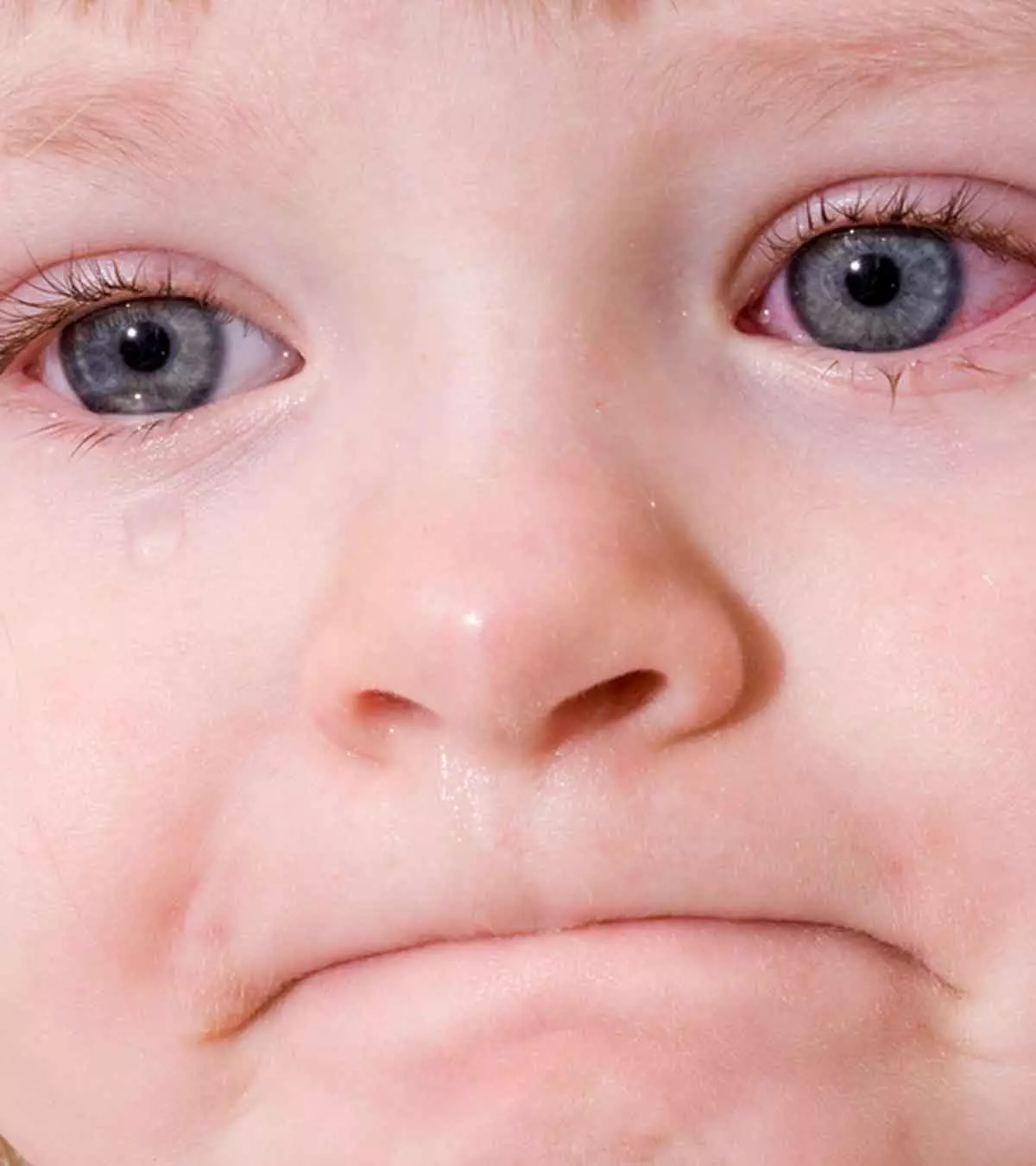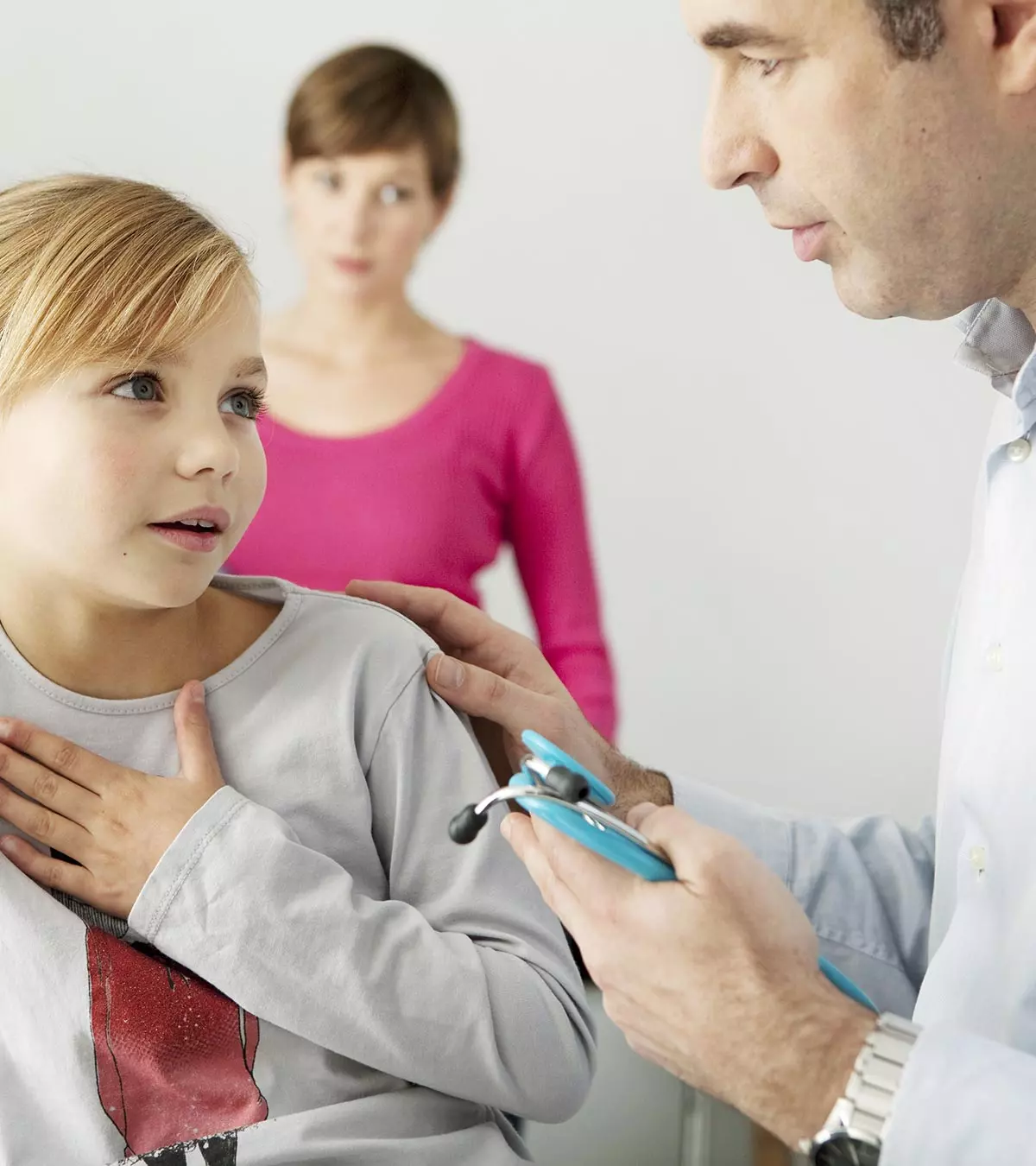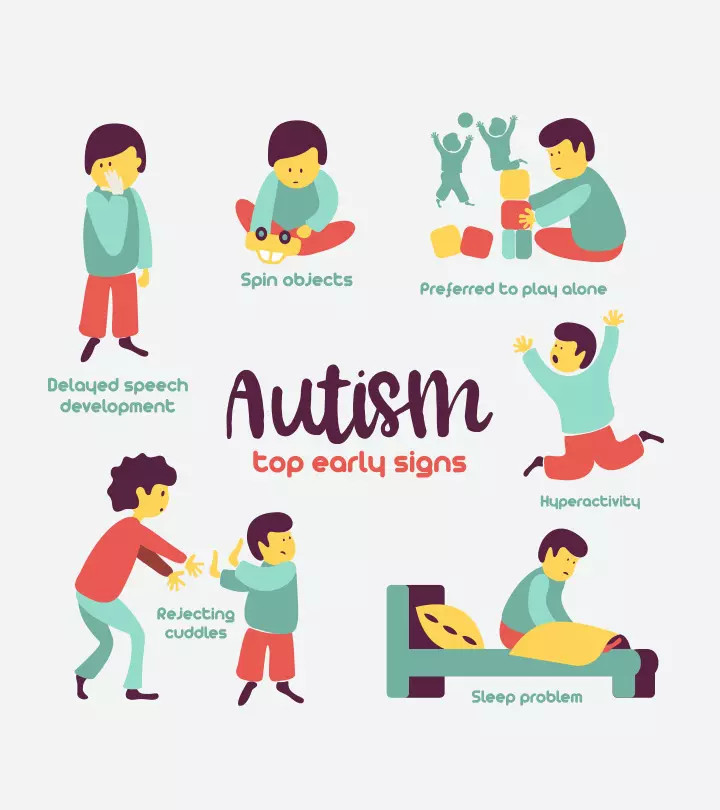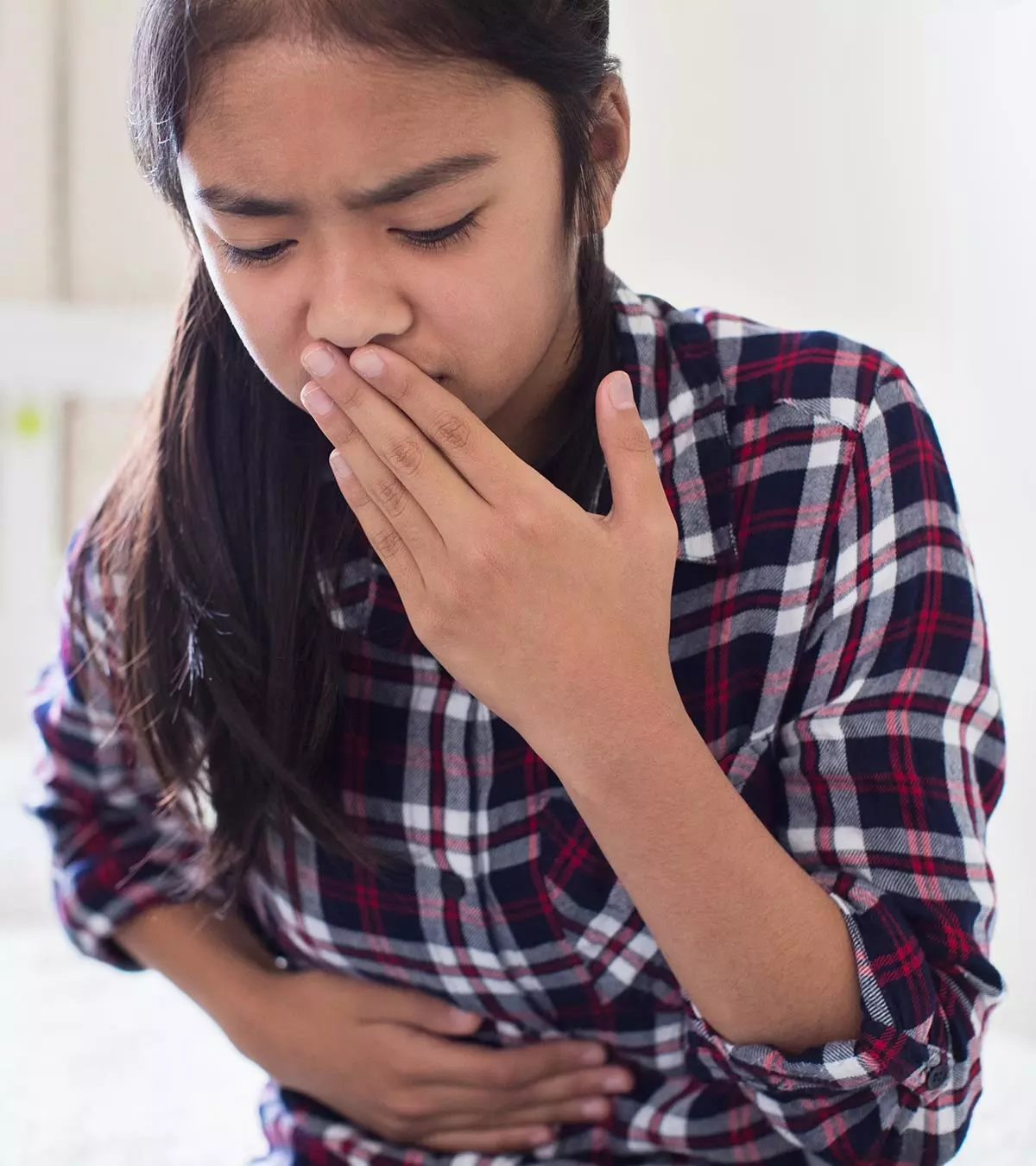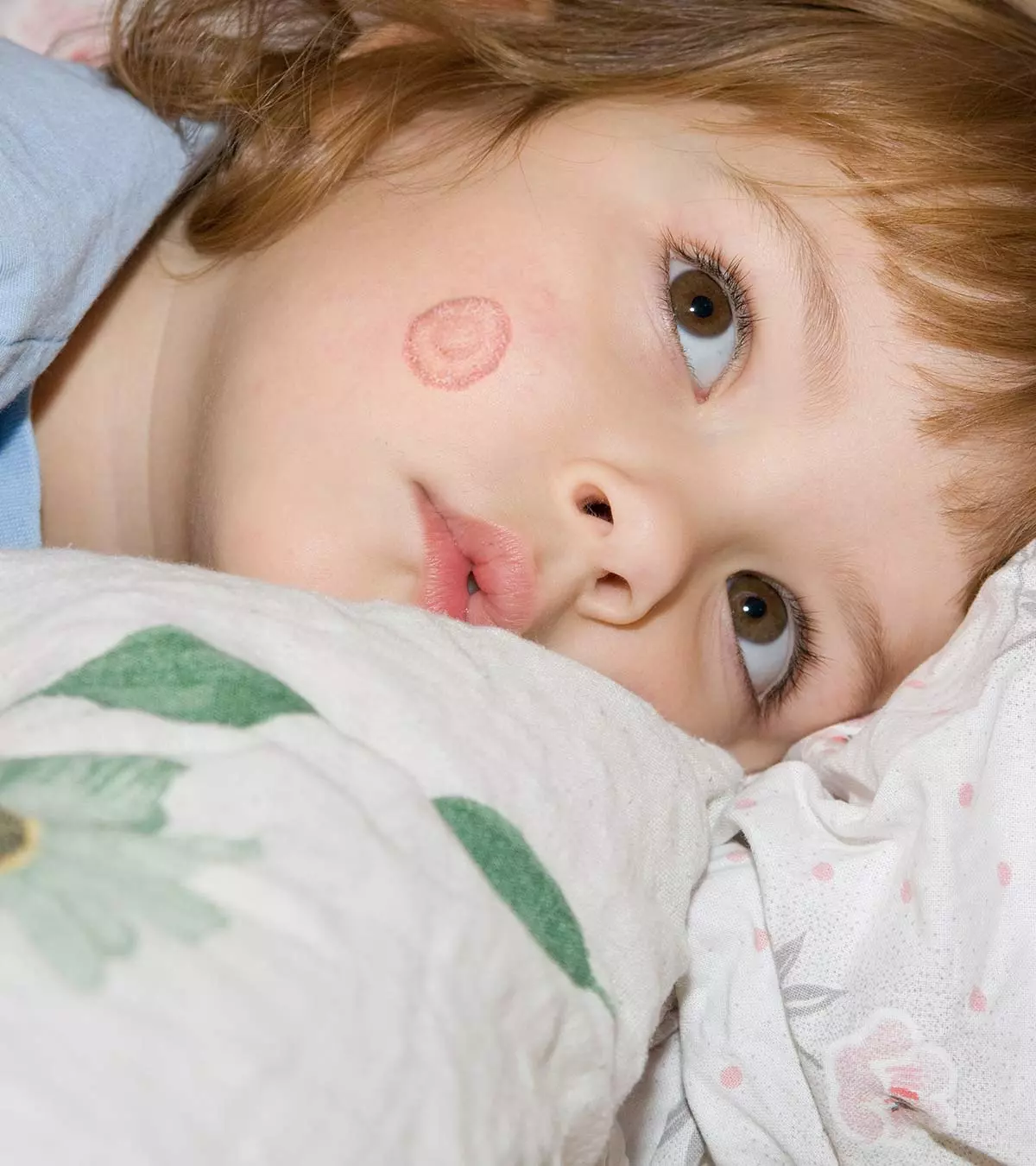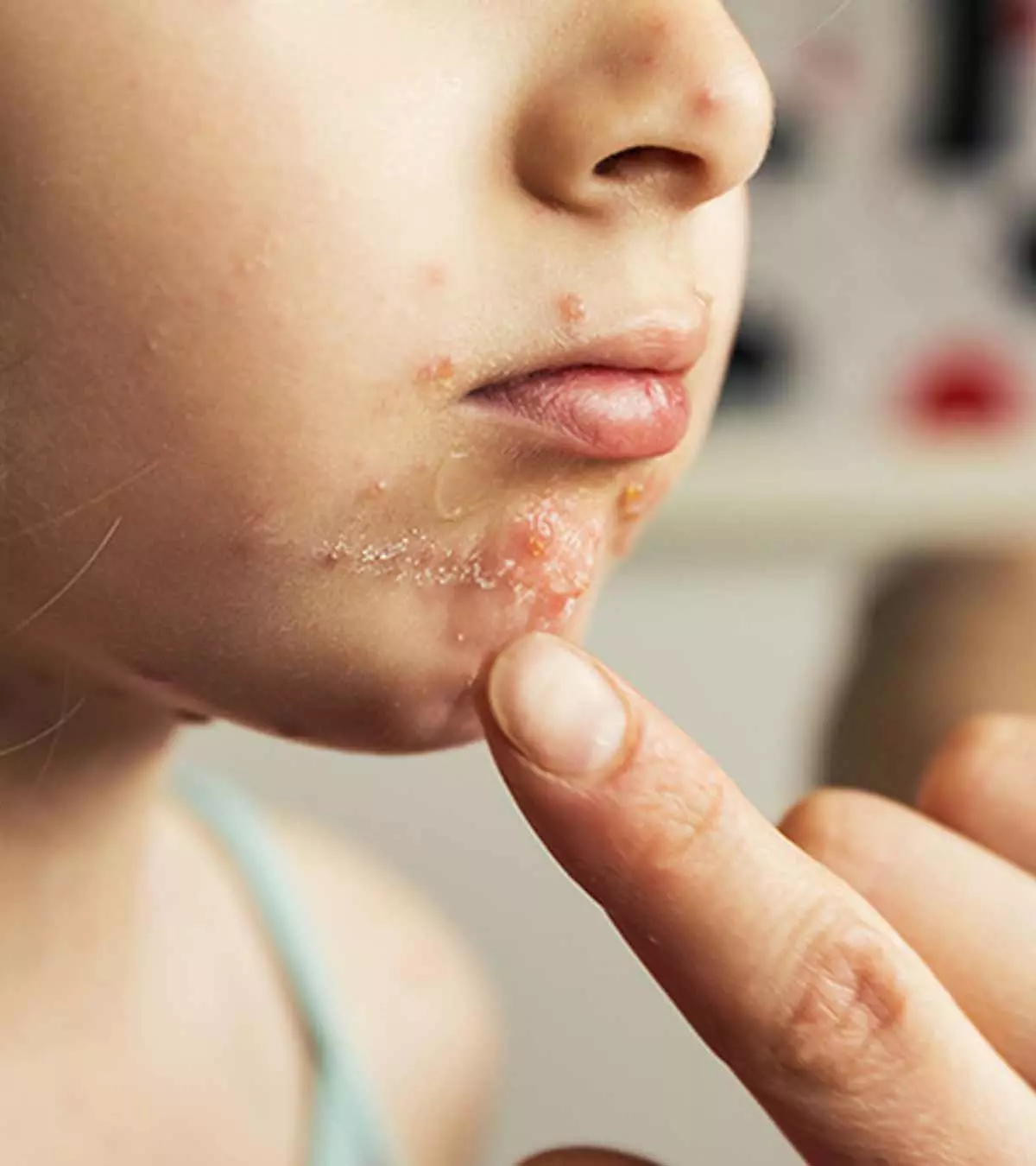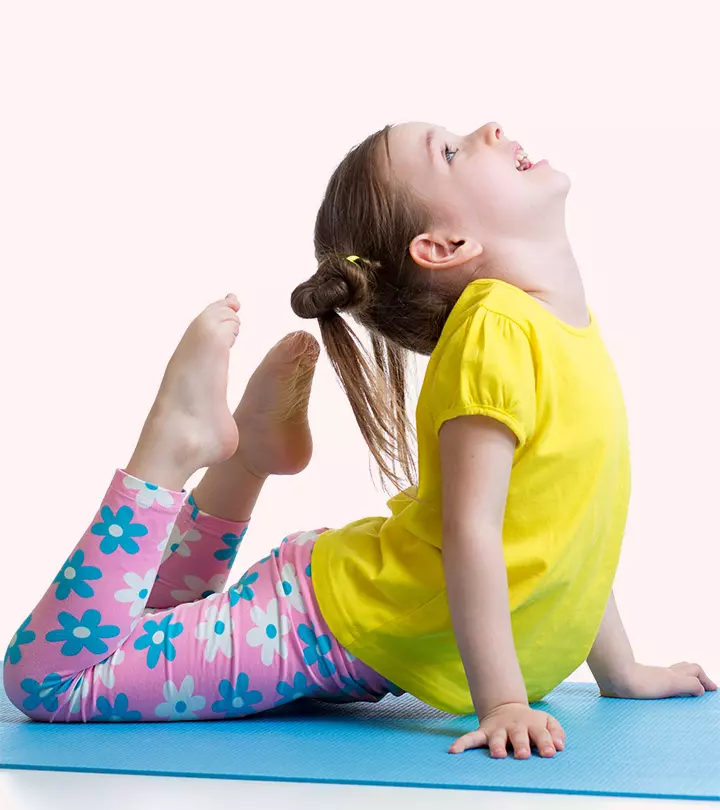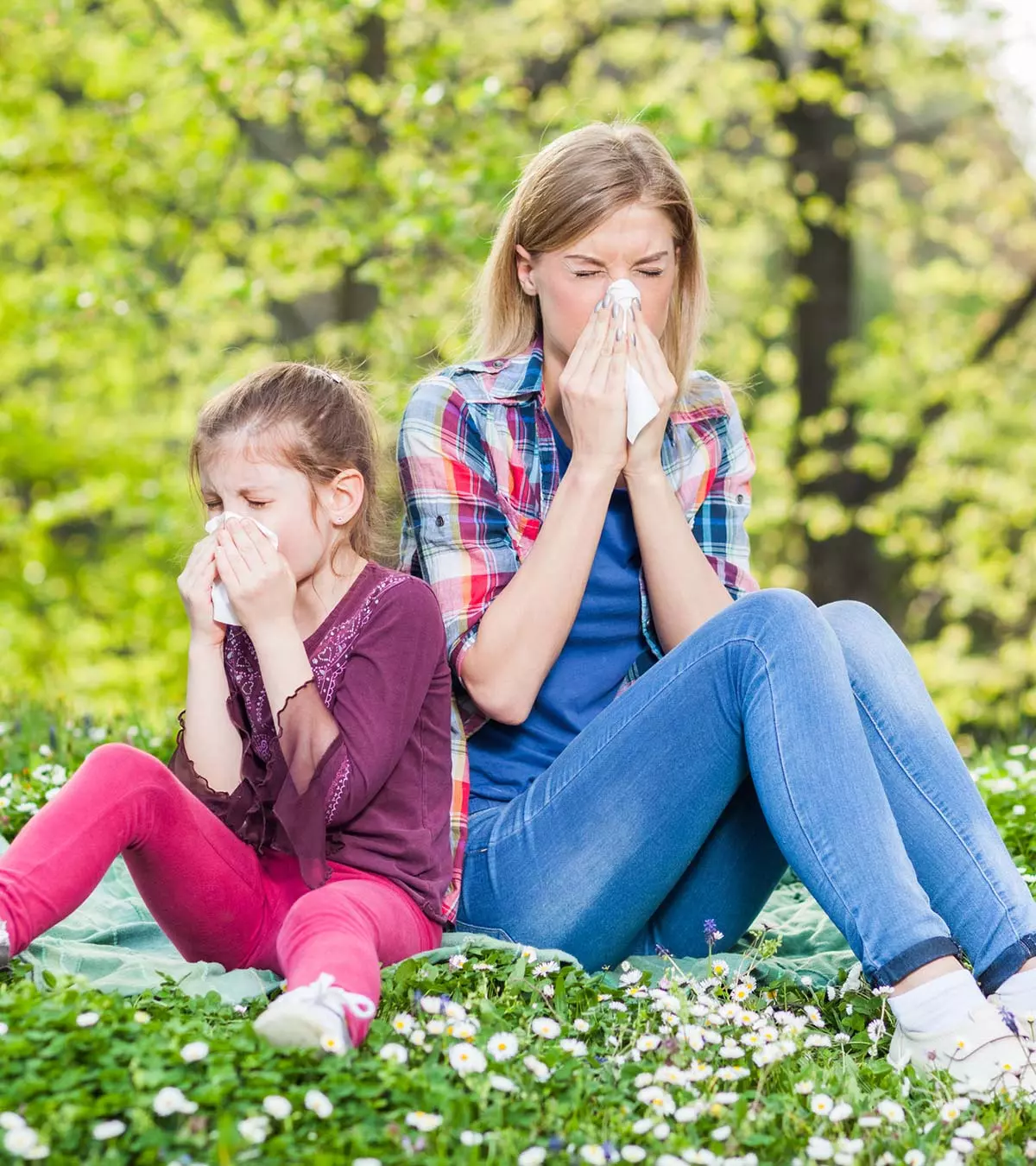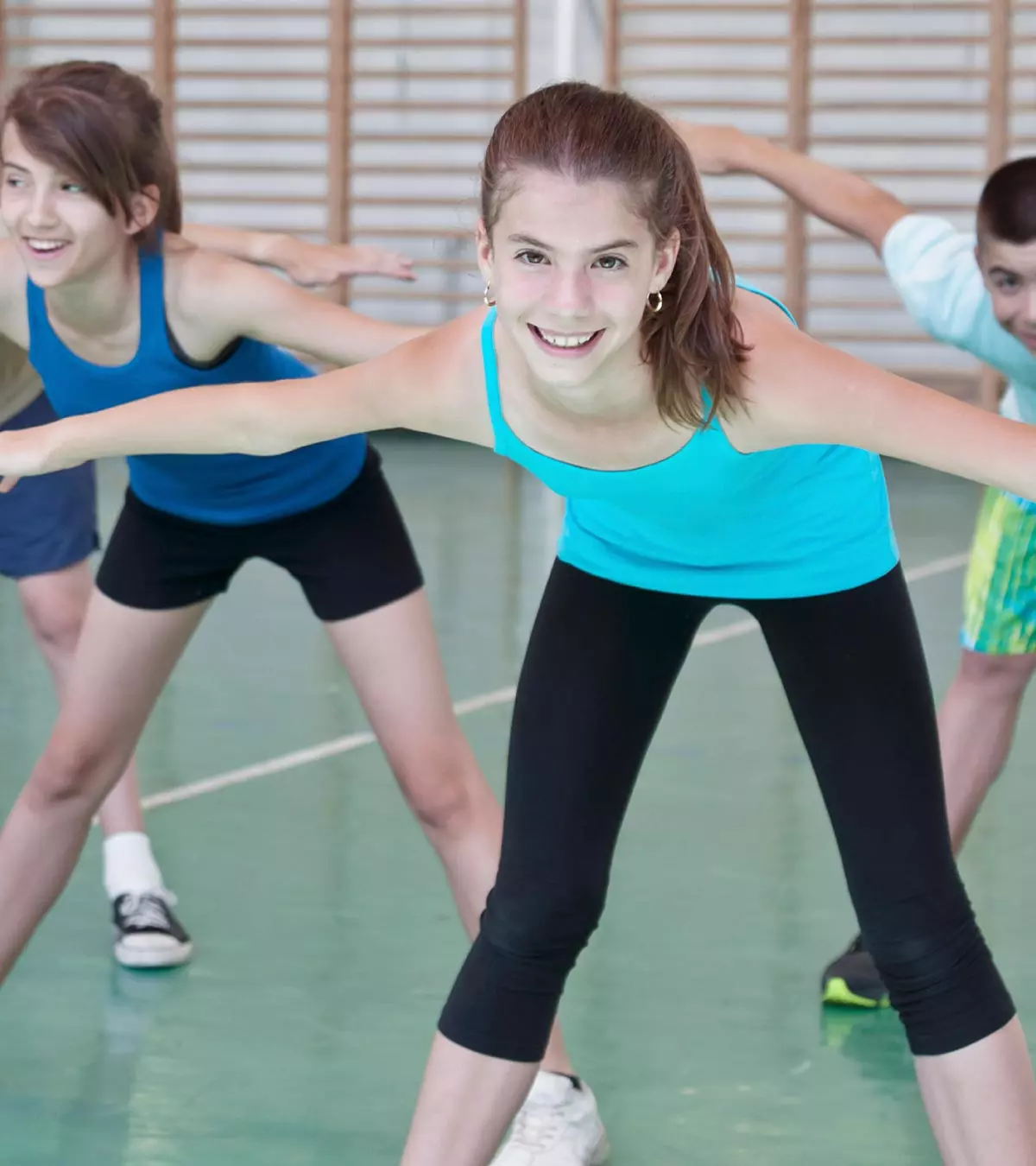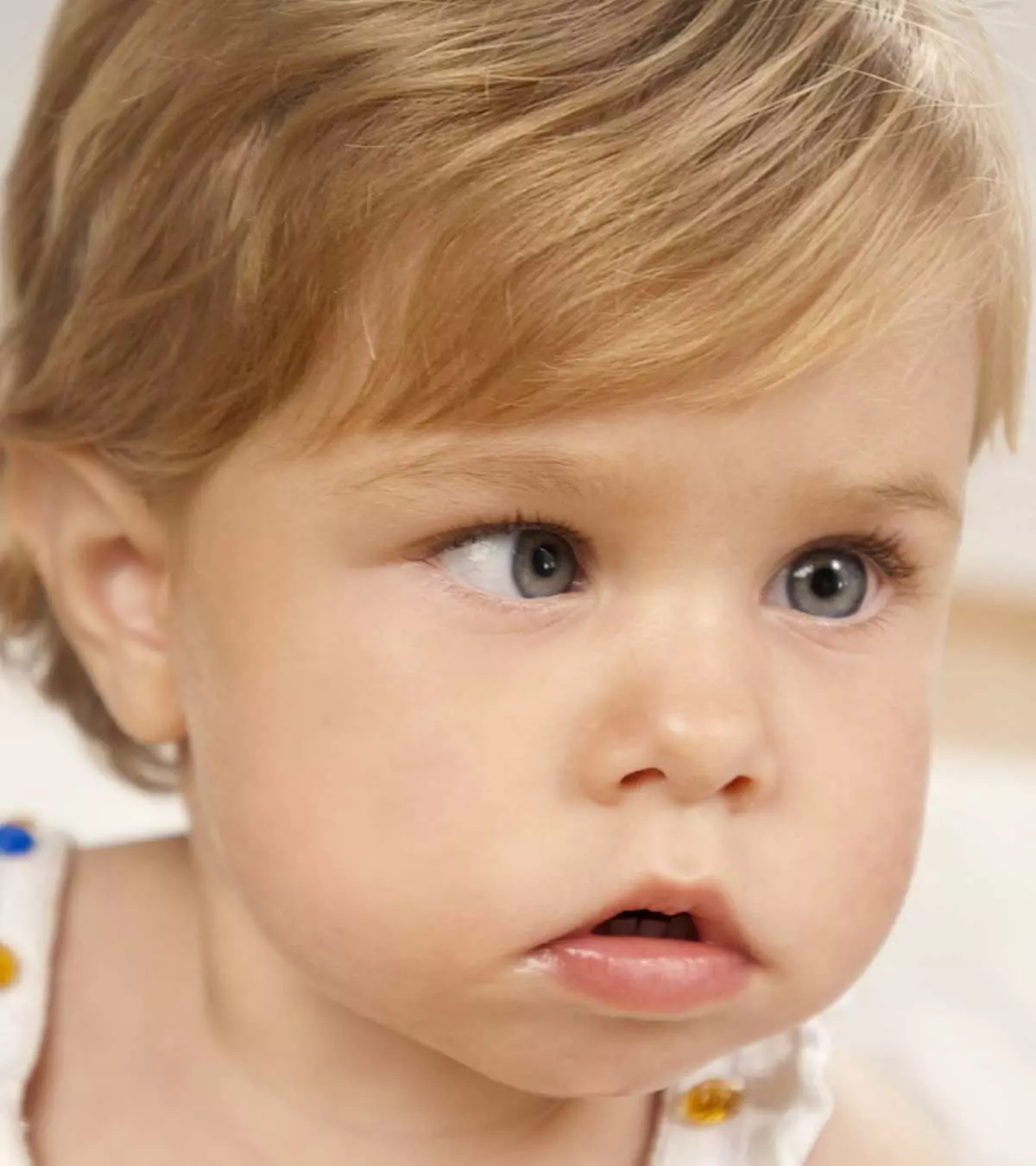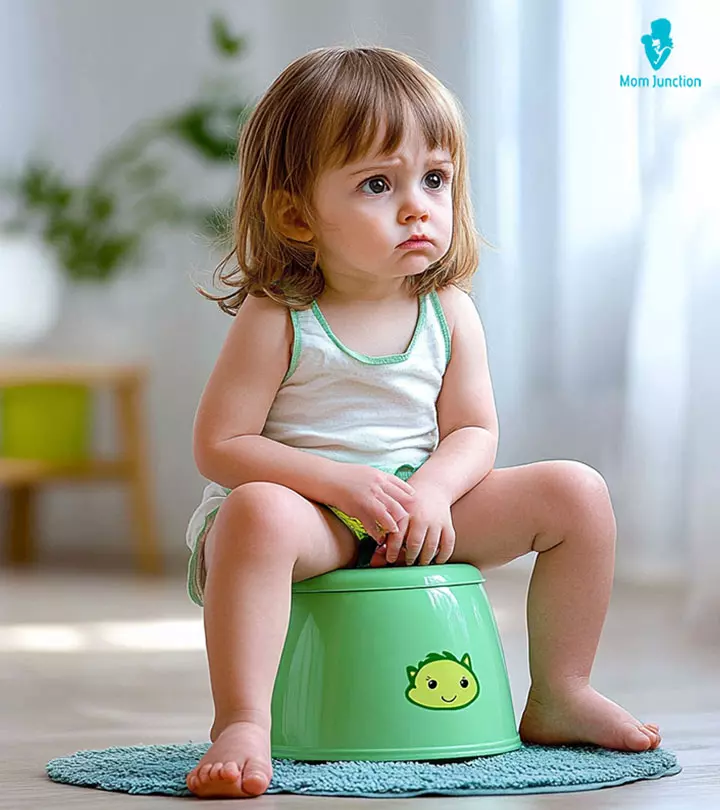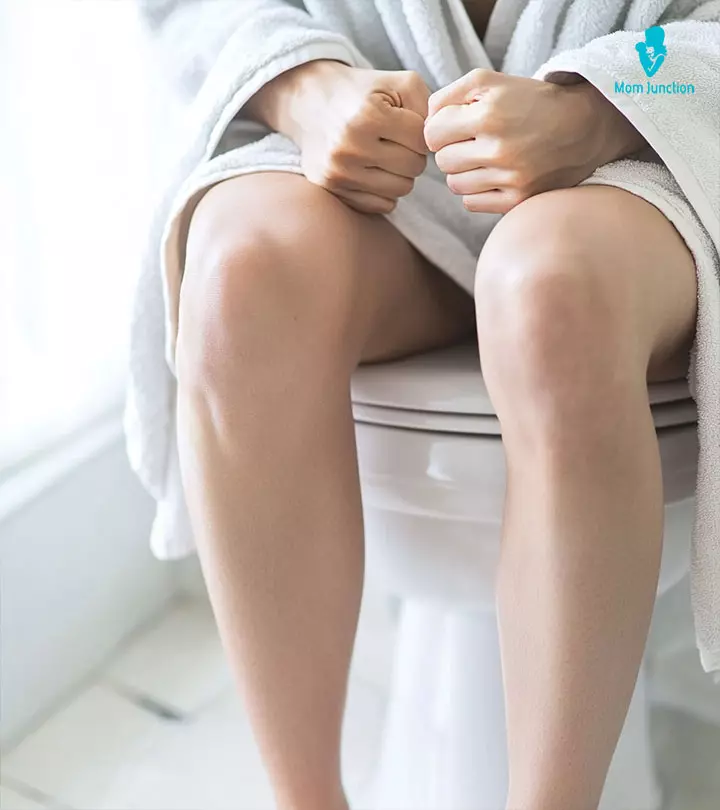
Image: Midjourney/ MomJunction Design Team
Hemorrhoids, commonly called piles, are swollen blood vessels around the rectum and anus. These blood vessels become inflamed and dilated when there is excess straining during bowel movements. While more common in adults, teenagers may also suffer from anorectal disorders such as hemorrhoids. Piles can occur either internally or externally and may cause irritation, bleeding, and pain around the anal opening (1). Read this post to know more about the types, symptoms, causes, diagnosis, home remedies, complications, treatment, and prevention of hemorrhoids in teenagers.
Key Pointers
- Hemorrhoids, or piles, are enlarged blood vessels surrounding the rectum and anus caused by bowel strain.
- Symptoms include a burning sensation during a bowel movement, itching near the anus, blood in stools, or difficulty passing bowels.
- Common causes include sitting on the toilet for a long duration, chronic constipation, low water intake, and a low dietary fiber intake.
- Home care treatment for teens involves increasing their fiber intake, cutting back on high-fat foods, exercising, developing good toilet habits, and drinking more water.
Symptoms Of Hemorrhoids In Teenagers
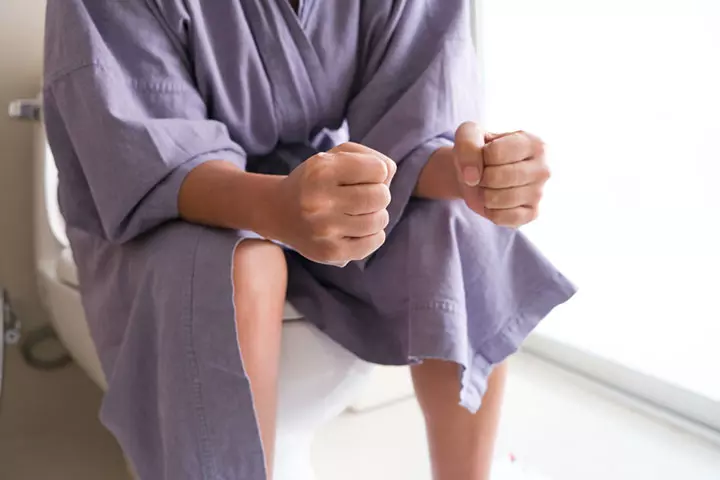
- Itching near the anus.
- Burning sensation while passing bowels.
- Blood in your child’s stool or on the toilet paper after defecation.
- Pain near the anal area due to enlarged blood vessels.
- Discomfort in sitting for long periods due to soreness near the anal region.
- Painful bowel movements and a feeling of obstruction near the anus.
- The pain continues for two to three days, and the enlargement might continue for one or two weeks (2).
Types Of Hemorrhoids
Some of the common observable symptoms of hemorrhoids in teens include:
There are two types of hemorrhoids:
Internal: These are present inside the anal canal and are usually painless. However, rectal bleeding is the most prominent hemorrhoid symptom. This may further progress into prolapsediA condition in which an internal organ protrudes through the muscles or tissue that normally hold it in place internal hemorrhoids, which are characterized by mild pain, fecal incontinenceiLoss of control over bowel movements caused by various medical conditions, leading to unintended bowel leakage , mucous discharge, and irritation of the skin around the anus.
External: When hemorrhoids hang out from the anus, then they are called external hemorrhoids. Based on the severity of the condition, these could be pushed back into the anus with fingers. These are painful and are tender to touch (3). External hemorrhoids could also contain a blood clot, which is known as thrombosed external hemorrhoids. These are itchy and cause swelling and redness after defecation, along with a bluish color appearance around the anus.
Causes Of Hemorrhoids In Teenagers
 Quick fact
Quick fact
- Chronic constipation
- Habitually sitting on the toilet for a long time
- Low dietary intake of fiber
- Less water intake
- Certain medications
- Obesity due to poor diet
- Family history of constipation
- Chronic diarrhea (4)
- Smartphone usage while on the toilet (5)
- Stress (16)
Dr. Steve Hodges, MD, a pediatric urologist at Wake Forest Baptist Health, says, “As soon as you feel the urge to poop, you should find a toilet. If you override that urge, poop piles up, hardens, and eventually stretches out the rectum. In many teens, the rectum ends up twice or even three times its normal diameter, and this bulge presses against the bladder. In turn, the bladder nerves become aggravated.”
Diagnosis
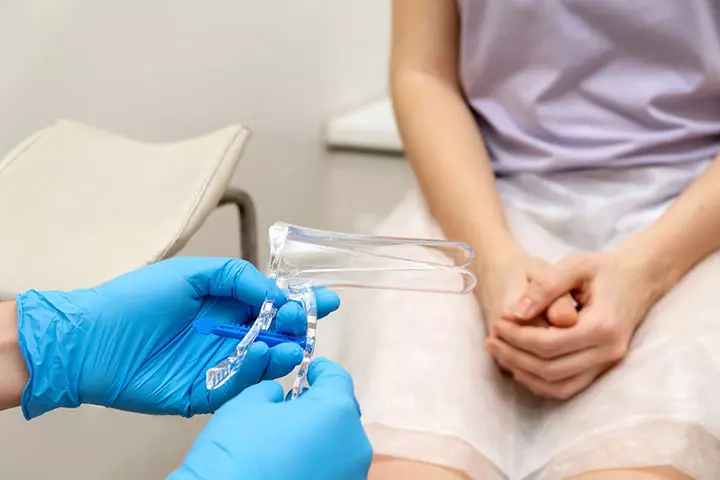
Your child’s doctor would inquire about the symptoms and medical history of your child and determine the presence of hemorrhoids. Sometimes, a physical examination or anorectoscopy (a tube-like instrument is used to perform a rectal examination) might be required.
In some teens, a speculum (duck-billed shaped instrument to examine a closed orifice in the body) examination could also be done.
Discomfort and emotional distress from your child’s behavior could also indicate hemorrhoids (4). Studies done to determine the genetic association between psychological disorders and hemorrhoidal disease indicated a bidirectional causal relationship between depression and hemorrhoids. This association could be attributed to the unhealthy lifestyle in individuals with depression, which often causes them to have reduced physical activity and increased risk of eating disorders (17).
Treatment For Hemorrhoids In Teenagers
Early identification can help treat hemorrhoids in teens without surgery. Internal and prolapsed hemorrhoids could be managed with dietary and lifestyle changes. The doctor would examine your child’s condition and may prescribe the following home care treatments before going for medications or surgery.
Home Care Treatments
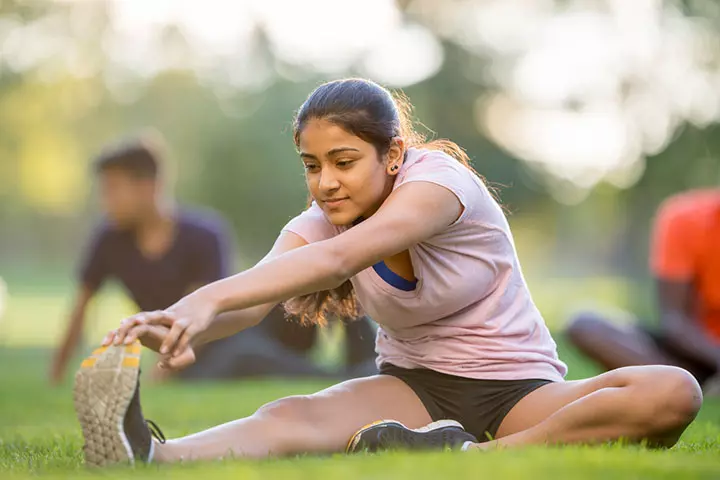
- If constipation is the cause of hemorrhoids, then increasing dietary fiber through high-fiber whole grains, such as wheat, oats, barley, and rye might help in the easy clearing of the bowels. This method of obtaining at least 20 to 35 grams of fiber per day might reduce the bleeding but may not relieve the pain and anal itching (18).
- Restricting the consumption of high-fat foods.
- Avoiding a sedentary lifestyle by encouraging them to go out and play or follow an exercise regime.
- Training your teenager to have proper toilet habits such as
- Have a regular habit of clearing the bowels every day.
- Spending less time on the toilet seat.
- Strictly restricting the habit of using smartphones on the toilet seat.
- Instruct your child never to hold the urge to defecate as it might flare up the hemorrhoids.
- Increasing the intake of water could also help in relieving constipation.
- Wearing comfortable cotton underwear that is less likely to irritate and exacerbate existing hemorrhoids, thus helping them heal better.
- Wearing loose-fitting clothing which allows for air circulation around the anal region, keeping it dry (19).
Thomas Gail Haws, a blogger who had his hemorrhoids surgically removed as a teenager, shares how changing his clothing style helped him prevent recurrent hemorrhoids. He writes, “If I wear pants that are too tight around the waist and lower abdomen, I become accustomed to pressure in the lower abdomen. I relax my abdominal muscles, letting my body settle into my pants. This relaxation and pressure contributes to my hemorrhoids. Therefore, one of the corrective actions when I suffer hemorrhoids is to change into a loose-fitting pair of pants, possibly with suspenders, and re-train my muscles to do their job sucking in my gut (i).” - Changing the medications that might be causing diarrhea or constipation (4).
Usually, the pain and bleeding might subside within two to three days when the constipation is treated. Also, the swelling of the hemorrhoids might remain for a week. However, if the above measures are not helpful, and if the pain and bleeding are continuous, then you might have to visit a doctor.
Medications
When the dietary or lifestyle changes fail to relieve constipation, then your child’s doctor might prescribe over-the-counter treatments and medications.
- Topical ointments containing zinc oxide or petroleum jelly could form a film over the hemorrhoids and prevent further tearing and may also soothe the itching.
- Using suppositoriesiMedication contained in a small, cone-shaped, or round material that is inserted into the rectum, vagina, or urethra to deliver the drug. to provide lubrication to the anal region.
- In the case of severe pain, your child’s doctor might suggest prescription medications such as acetaminophen, ibuprofen, or naproxen (6).
- LaxativesiMedications that loosen stools and stimulate bowel movement effectively relieving constipation. and suppositories can be prescribed to treat constipation.
 Point to consider
Point to considerSurgery
When the above options fail to provide relief, or if the hemorrhoids have been left untreated, then the doctor might prescribe surgery.
- Hemorrhoids are removed by surgery if they have become large and external, causing considerable discomfort.
- Surgery is also preferred in the case of thrombosed hemorrhoids, where the clot is removed to relieve pain.
 Quick fact
Quick factHome Remedies For Hemorrhoids In Teenagers
Home remedies for hemorrhoids would be helpful when used along with the home care treatments. These may not be able to cure the hemorrhoids but might help in relieving the symptoms of hemorrhoids.
1. Sitz baths: These baths are recommended for people who have irritated, bruised, or broken skin in the anal region due to hemorrhoids. The baths help in cleansing, soothing, and increase blood circulation in the anal region, which might help in healing.
How to: You can use a sitz bath or your bathtub for this bath. Fill them with warm water and mix baking soda or salt. Make your child sit in it so that their bottom is immersed in the water (in case you are using a bathtub, instruct the child to lean backward so that the water can reach the whole bottom area). You may do it four times a day (7).
2. Cold compress: Applying an ice pack on the hemorrhoids provides vasoconstrictioniThe narrowing of blood vessels, leading to decreased blood flow and increased blood pressure and might help in relieving the pain, itching, and inflammation due to hemorrhoids (8).
How to: You can soak a washcloth in cold water or apply an ice pack directly on your child’s anal region and leave it for 10 -15 minutes. Repeat this two to three times a day.
3. Squatting position: According to a study, the squatting position (keeping the knees close to the chest) while defecating is found to exert less strain on the anorectal canal
iAn embryonic structure at the end of the gastrointestinal tract that divides into the anal canal and the rectum. . It might help reduce the aggravation of hemorrhoids, and eventually might help them heal better (9).How to: Place a small stool in front of the toilet seat and ask your child to place their legs on the stool while sitting on the toilet seat.
4. Radish: The juice from this vegetable is said to provide relief from hemorrhoids.
How to: Extract the juice of white radish and mix it with honey. Apply this mixture on the hemorrhoids and cover it with a cloth. Remove the cloth after 15 minutes. Repeat this once daily (10).
5. Banana: The sap from this plant has astringent properties and might help in relieving the pain caused due to hemorrhoids. Also, consuming the ripe fruit mixed with milk is said to relieve constipation.
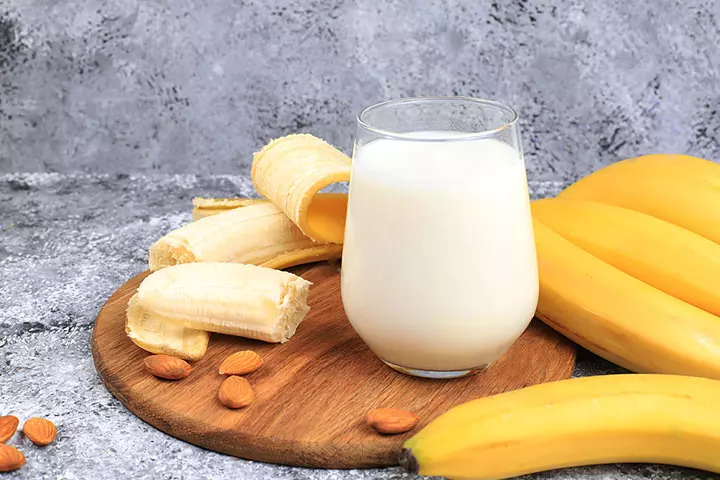
How to: Extract the sap from a banana tree and apply it directly on the hemorrhoids (11).
Mash a ripe banana in a cup of milk and give this drink to your child three to four times a day (10).
6. Herbs: Herbal extracts of butcher’s broom, horse chestnut, white hazel are found to be effective in managing hemorrhoids. However, these need proper instructions from herbalists for their usage in children (12).
7. Aloe vera gel: In ancient Greek medicine, applying aloe vera gel on hemorrhoids was said to provide a soothing effect (13).
How to: Extract aloe vera gel from the plant and apply it on your child’s hemorrhoids and wash it off after 15 minutes. Repeat this two to three times a day.
Complications Of Hemorrhoids In Teenagers
Hemorrhoids in teenagers could be treated with some home care tips without any further complications. However, if there is a delay in identification or treating hemorrhoids, it may lead to the below conditions.
- Prolonged bleeding might lead to anemiaiA condition where the body lacks red blood cells for oxygen transport to body tissues .
- If there is a blood clot within the hemorrhoids, then it could be extremely painful and might require surgical removal.
Prevention Of Hemorrhoids In Teenagers
Hemorrhoids in teenagers occur mostly due to constipation or poor bathroom habits. You might be able to reduce the risk of hemorrhoids by encouraging your teen to adopt a healthy lifestyle, consume fiber-rich foods, and develop proper bathroom habits. Adopting an active lifestyle through walking, running, biking, yoga, and avoiding foods that irritate your gut may aid in proper bowel movement (14).
Dr. Hodges opines, “You can avoid hemorrhoids by keeping your poop mushy and pooping right when you feel the urge, rather than delaying it. Pooping shouldn’t take more than 10 to 20 seconds. If you’re sitting on the toilet for ten minutes, you’re sitting way too long! If you never strain to poop, you won’t get hemorrhoids. To keep poop soft enough to exit easily, eat plenty of fiber, and drink lots of fluids. If you’re constipated enough to have hemorrhoids, frequent peeing, or bedwetting, you will likely need more significant treatment, such as laxatives or enemas.”
Frequently Asked Questions
1. What foods trigger hemorrhoids?
Chips, cheese, fast food, snacks, meat, ice cream, frozen foods, hot dogs, and microwavable dinners are some items with no or very little fiber that may lead to hemorrhoids (14).
- Chips
- Cheese
- Fast food
- Snacks
- Meat
- Ice cream
- Frozen foods
- Hot dogs
- Microwavable dinners
2. Is walking good for hemorrhoids?
Yes, walking can be a good exercise, especially for sedentary people. Moreover, it may improve your digestion and ease bowel movements.
3. Can hemorrhoids impact a teen’s daily activities?
Hemorrhoids may cause discomfort during everyday tasks such as cycling, exercising, and prolonged sitting. This condition can be difficult to manage and live with.
4. What is the role of a gastroenterologist in treating hemorrhoids in teens?
Gastroenterologists can offer non-surgical interventions such as hemorrhoid banding and perform procedures such as endoscopy while interpreting the outcomes. For example, if a patient suspects having hemorrhoids, a gastroenterologist can identify the condition and propose treatment options depending on its seriousness.
Hemorrhoids in teens could be a painful condition that might also give rise to social anxiety as they won’t be comfortable talking about it to anybody. Therefore, teaching your child proper potty habits from a young age and including fiber-rich food in their diet to ensure proper bowel movements is essential. With the help of your doctor or pediatrician and following specific home remedies such as using aloe vera gel or opting for a sitz bath, you can help your child overcome this condition and prevent any complications.
Infographic: Is It Hemorrhoids Or Something Else?
The signs and symptoms of hemorrhoids are not specific since they can also occur in other conditions. Medical evaluation is required to confirm the diagnosis. Go through the infographic to know conditions that can be mistaken for hemorrhoids in teens. Illustration: Momjunction Design Team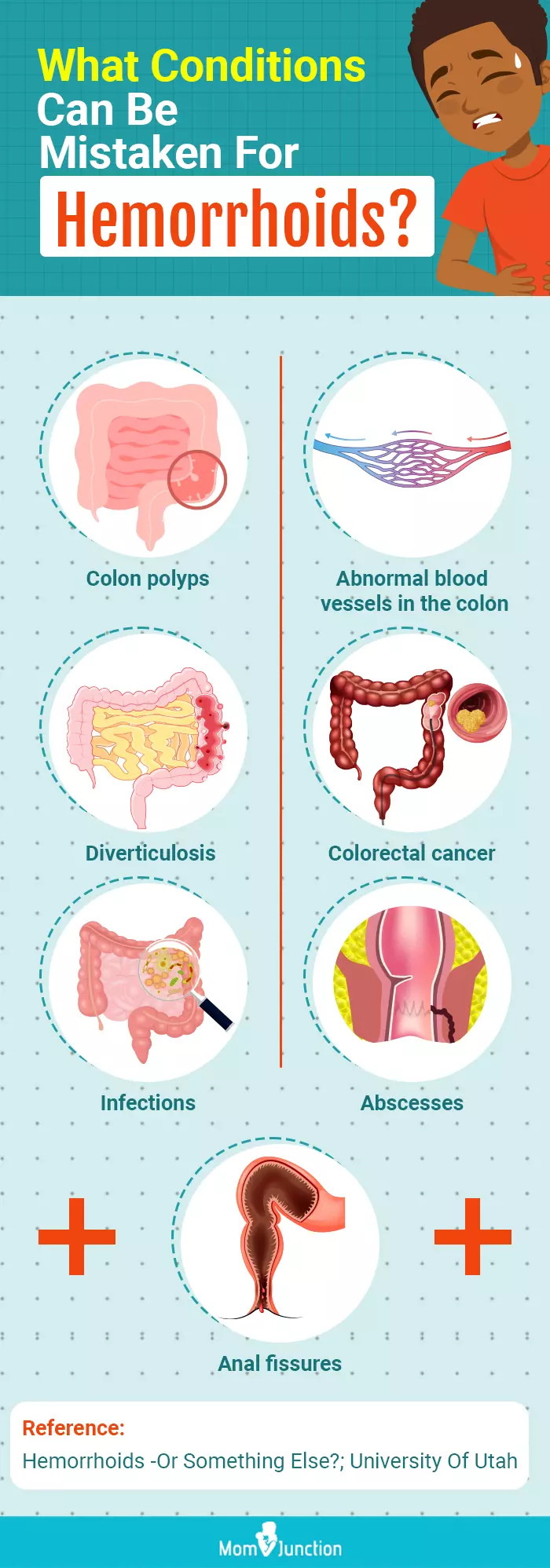
Illustration: Hemorrhoids In Teens: Causes Symptoms And Treatment
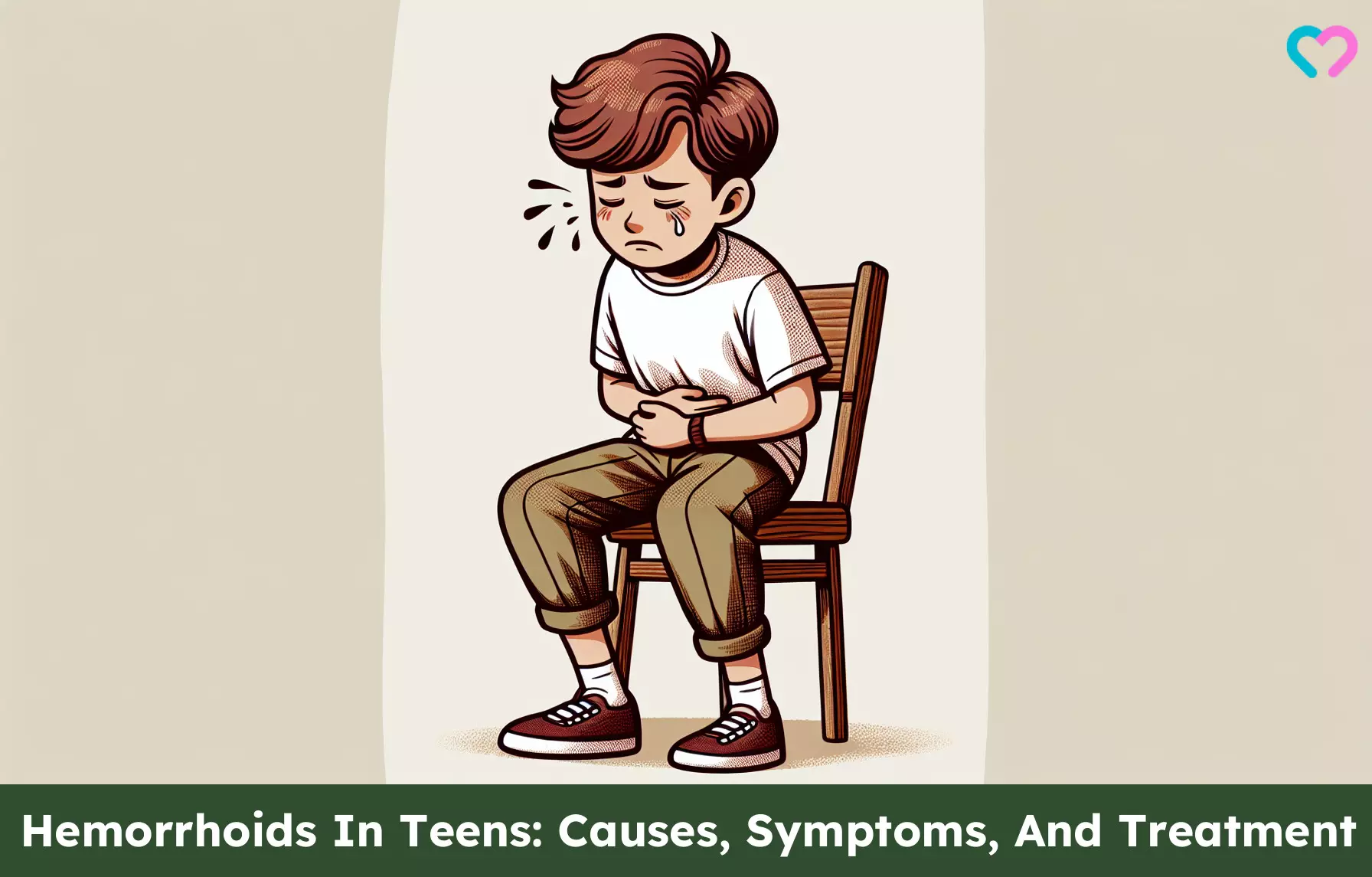
Image: Stable Diffusion/MomJunction Design Team
Look into simple natural treatments to get rid of hemorrhoids effectively. Discover the most efficient hemorrhoid treatments and ways for preventing its recurrence.
Personal Experience: Source
MomJunction articles include first-hand experiences to provide you with better insights through real-life narratives. Here are the sources of personal accounts referenced in this article.
i. Hemmorhoids, Their Cause and Their Natural Permanent Cure;https://tomsthird.blogspot.com/2009/10/hemmorhoids-their-cause-and-their.html
References
1. Turan Yildiz, et al., External hemorrhoidal disease in child and teenage: Clinical presentations and risk factors; Pakistan Journal of Medical Sciences
2. Afra Karavelioglu, et al., Haemorrhoids in Children: A Retrospective Study; Journal of Contemporary Medicine
3. Zhifei Sun, and John Migaly, Review of Hemorrhoid Disease: Presentation and Management; Clinics in Colon and Rectal Surgery
4. Ramin Jamshidi; Anorectal Complaints: Hemorrhoids, Fissures, Abscesses, Fistulae; Clinics in Colon and Rectal Surgery
5. The Relationship Between Hemorrhoids and Smartphone Use in the Lavatory; Clinical Trials; US National Library of Medicine
6. Hemorrhoids; Mott’s Childrens’ Hospital
7. Having a Sitz Bath at Home; Patient Education- University Health Network
8. Luis Charua Guindic, Treatment of uncomplicated hemorrhoids with a Hemor-Rite® cryotherapy device: a randomized, prospective, comparative study; Journal of Pain Research
9. Ryuji Sakakibara et al., Influence of Body Position on Defecation in Humans; Research Gate
10. Hindustan Abdul Ahad et al., Herbal Treatment For Hemorrhoids; Research Gate
11. K. P. Sampath Kumar et al., Traditional and Medicinal Uses of Banana; Journal of Pharmacognosy and Phytochemistry
12. Kathy Abascal and Eric Yarnell, Botanical Treatments for Hemorrhoids; Research Gate
13. Meika Foster, Duncan Hunter, and Samir Samman, Evaluation of the Nutritional and Metabolic Effects of Aloe vera; NCBI
14. 5 Simple Ways To Prevent Hemorrhoids; Cleveland Clinic
15. Hemorrhoids; Children’s Health Orange County
16. 5 Top Hemorrhoids Myths –And the Truth about Treatment; Indiana University Health
17. Zhiguang Huang et al.;Hemorrhoidal disease and its genetic association with depression, bipolar disorder, anxiety disorders, and schizophrenia: a bidirectional mendelian randomization study; NCBI
18. Hemorrhoids; Cleveland Clinic
19. Hemorrhoids (1761); Children’s Wisconsin
Community Experiences
Join the conversation and become a part of our nurturing community! Share your stories, experiences, and insights to connect with fellow parents.
Read full bio of Dr. Sameh Mahmoud Shehata
- Dr. Steve Hodges is a pediatric urologist at Wake Forest Baptist Health and an associate professor of pediatric urology at Wake Forest University School of Medicine. With over 25 years of experience, he’s an expert in issues related to bedwetting, potty training, chronic constipation, and other childhood toileting issues. Dr. Hodges earned a BA from Duke University and a MD from Wake Forest School of Medicine, where he also completed his residency in urology, followed by a fellowship in urology at Children’s Hospital of San Diego. He is a member of the American Urological Association.
 Dr. Steve Hodges is a pediatric urologist at Wake Forest Baptist Health and an associate professor of pediatric urology at Wake Forest University School of Medicine. With over 25 years of experience, he’s an expert in issues related to bedwetting, potty training, chronic constipation, and other childhood toileting issues. Dr. Hodges earned a BA from Duke University and a MD from Wake Forest School of Medicine, where he also completed his residency in urology, followed by a fellowship in urology at Children’s Hospital of San Diego. He is a member of the American Urological Association.
Dr. Steve Hodges is a pediatric urologist at Wake Forest Baptist Health and an associate professor of pediatric urology at Wake Forest University School of Medicine. With over 25 years of experience, he’s an expert in issues related to bedwetting, potty training, chronic constipation, and other childhood toileting issues. Dr. Hodges earned a BA from Duke University and a MD from Wake Forest School of Medicine, where he also completed his residency in urology, followed by a fellowship in urology at Children’s Hospital of San Diego. He is a member of the American Urological Association.
Read full bio of Dr. Ritika Shah
Read full bio of Swati Patwal
Read full bio of Ghazia Shah








